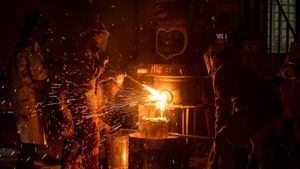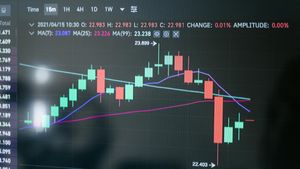Donald Trump’s return to the presidency has sparked significant controversy, especially surrounding his actions on January 6. The former president's decision to pardon individuals involved in the chaotic Capitol riot has garnered widespread condemnation from politicians across the aisle.
Since returning to the White House, Trump has made headlines for his long list of broken promises. On his first day in office, he vowed to reduce grocery prices, claiming they would “come down dramatically and fast.” Yet, just months later, Trump conceded the difficulty of achieving this goal, stating, "It’s very hard”—a stark acknowledgment of the challenges he faced.
While many of Trump's Day One promises remain unfulfilled, he did follow through on his controversial pledge to pardon individuals involved in the January 6 insurrection. This move raised alarms not only among Democrats but also within the Republican Party, with some members expressing discomfort. Senate Minority Leader Chuck Schumer (D-N.Y.) and other Senate Democrats are now pushing for a resolution to condemn these pardons, highlighting the severity of the issue.
“Donald Trump’s pardons are a wholesale endorsement of political violence—as long as it serves Donald Trump,” Senator Patty Murray (D-Wash.) stated, encapsulating the fears held by many about the long-term repercussions of Trump's decisions.
Trump’s mass pardons, which included nearly all the 1,600 people charged following the riot, have raised concerns about their potential impact on public safety. Critics worry about empowering those who participated in the riot, as reflected by the Capitol Police Officers Association, which condemned the pardons for sending dangerous signals about the protection of police officers’ lives.
Political violence is now being viewed through the lens of Trump’s administration, with reports indicating nearly 600 rioters are accused of assaulting police, with 10 convicted of sedition—the most serious charge levied against any individual linked to the Capitol riot.
Trump’s pardons have drawn mixed reactions, showcasing the fractured political environment. Even prominent Trump ally Senator Lindsey Graham (R-S.C.) described the pardoning of those involved in the insurrection as “a mistake.” Meanwhile, Trump has directed the Justice Department to dismiss pending indictments against many of those involved, complicing the message of accountability.
The fallout from Trump's decisions extends beyond immediate political reactions, as Illinois Governor JB Pritzker has taken steps to prevent those involved in the January 6 attack from being employed by the state. Pritzker condemned the actions of the rioters, stating, "No one who attempts to overthrow a government should serve in government." Such moves deepen the divide on handling the consequences of the Capitol riot.
For Trump, the backlash against his second-term agenda poses significant challenges. His plans include imposing tariffs on Canada, Mexico, and China which have met with skepticism, even from within his own party. Pritzker has criticized these tariffs, arguing they would burden ordinary Americans, indicating the potential disconnect between Trump’s populist rhetoric and the practical impact of his policies.
Analysts argue Trump’s approach, marked by chaos and overreach, is not only jeopardizing his political capital but also testing the limits of executive power. Legal scholars have raised alarms about the well-documented swiftness of his executive orders, stating this could erode checks and balances established under the Constitution.
“I don’t think you’ve seen anything this wide-ranging [...] coming from a president so early in the term,” stated Mitchel Sollenberger, political science professor at the University of Michigan-Dearborn, emphasizing the unprecedented nature of Trump’s strategy to envelop the political space with rapid policy changes.
While Trump has begun issuing executive orders aimed at reshaping policies and norms, the ripples of his January 6 pardons loom large. Many Americans are split on these actions—concerned about increasing instances of political violence but also yearning for decisive leadership after years of political stagnation.
“Many Americans want to get things done after decades of sluggish legislative progress,” noted Karlyn Bowman from the American Enterprise Institute, hinting at Trump's ability to galvanize support among those frustrated with the status quo.
Yet, the long-term fallout from his decisions remains to be seen. The chaos cultivated by Trump's tenure raises questions about public perception of law enforcement and the broader integrity of government institutions. The impacts of his actions may well shape the political narrative for years to come, especially with the upcoming elections on the horizon.
With the nation polarized, Trump’s return to power carries with it the weight of unresolved issues and ample political strife. His administration’s aggressive maneuvers will continue to receive scrutiny as they potentially redefine what accountability looks like in American politics.
“Every day, we’re surrounded by history...” reflects the reality experienced by those who serve and protect, especially as the Capitol remains not only a symbol of democracy but also of the tumultuous challenges facing the nation.
The picture of January 6, for both law enforcement and lawmakers, serves as both a reminder and a warning of the consequences of political violence, weighing heavily on the decisions made by future leaders.



